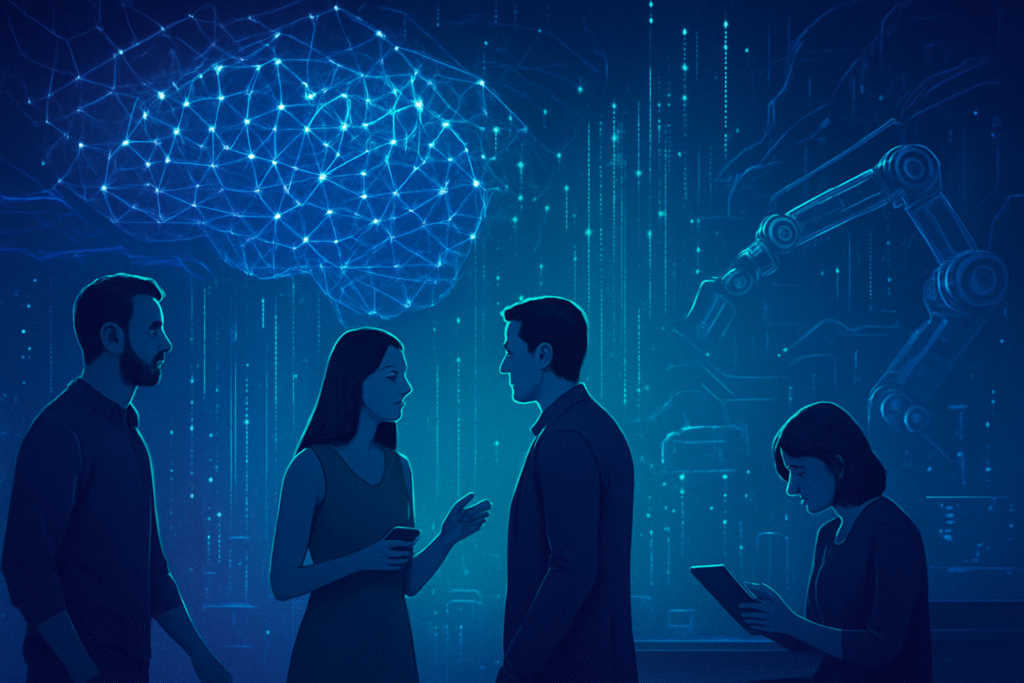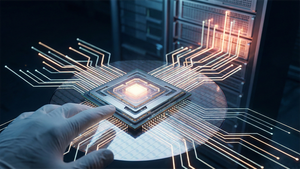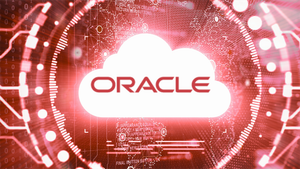
Despite a chorus of expert warnings about the transformative and potentially disruptive impact of artificial intelligence on the global workforce, a curious paradox persists: the public largely remains unconcerned about AI's direct threat to their own jobs. As of November 2025, surveys consistently reveal a significant disconnect between a general acknowledgment of AI's job-eliminating potential and individual optimism regarding personal employment security. This widespread public apathy, often termed "optimism bias," presents a formidable challenge for policymakers, educators, and industry leaders attempting to prepare for the inevitable shifts in the labor market.
This article delves into the heart of this perception gap, exploring the multifaceted reasons behind public unconcern even when confronted with stark warnings from luminaries like AI pioneer Geoffrey Hinton. Understanding this disconnect is crucial for effective workforce planning, policy development, and fostering a societal readiness for an increasingly AI-driven future.
The Curious Case of Collective Concern, Individual Calm
The technical specifics of this societal phenomenon lie not in AI's capabilities but in human psychology and historical precedent. While the public broadly accepts that AI will reshape industries and displace workers, the granular understanding of how it will impact their specific roles often remains elusive, leading to a deferral of concern.
Recent data paints a clear picture of this nuanced sentiment. A July 2025 Marist Poll indicated that a striking 67% of Americans believe AI will eliminate more jobs than it creates. This sentiment is echoed by an April 2025 Pew Research Center survey, where 64% of U.S. adults foresaw fewer jobs over the next two decades due to AI. Yet, juxtaposed against these macro concerns is a striking personal optimism: a November 2025 poll revealed that while 72% worried about AI reducing overall jobs, less than half (47%) were concerned about their personal job security. This "it won't happen to me" mentality is a prominent psychological buffer.
Several factors contribute to this pervasive unconcern. Many view AI primarily as a tool for augmentation rather than outright replacement, enhancing productivity and automating mundane tasks, thereby freeing humans for more complex work. This perspective is reinforced by the historical precedent of past technological revolutions, where new industries and job categories emerged to offset those lost. Furthermore, an "awareness-action gap" exists; while people are aware of AI's rise, they often lack concrete understanding of its specific impact on their daily work or clear pathways for reskilling. The perceived vulnerability of jobs also varies, with the public often underestimating AI's potential to impact roles that experts deem highly susceptible, such as truck drivers or even certain white-collar professions.
Corporate Strategies in a Climate of Public Complacency
This prevailing public sentiment—or lack thereof—significantly influences the strategic decisions of AI companies, tech giants, and startups. With less immediate pressure from a largely unconcerned workforce, many companies are prioritizing AI adoption for efficiency gains and productivity enhancements rather than preemptive, large-scale reskilling initiatives.
Companies like Alphabet (NASDAQ: GOOGL), Microsoft (NASDAQ: MSFT), and Amazon (NASDAQ: AMZN), major players in AI development and deployment, stand to benefit from this public complacency as it allows for smoother integration of AI into operations without significant labor pushback. Their focus often remains on developing AI that complements human tasks, such as AI-powered development tools or multi-agent AI workflow orchestration offered by companies like TokenRing AI, rather than explicitly marketing AI as a job-replacing technology. This approach allows them to improve their competitive positioning by reducing operational costs and accelerating innovation.
The competitive implications are significant. Tech companies that can effectively integrate AI to boost productivity without triggering widespread public alarm gain a strategic advantage. This allows them to disrupt existing products and services by offering more efficient, AI-enhanced alternatives. Startups entering the AI space also find fertile ground for developing solutions that address specific business pain points, often framed as augmentation tools, which are more readily accepted by a workforce not actively fearing displacement. However, this climate could also lead to a lag in robust workforce planning and policy development, potentially creating greater friction down the line when AI's transformative effects become undeniable and more acutely felt by individual workers.
Broader Significance and Societal Implications
The disconnect between expert warnings and public unconcern for AI's impact on jobs holds profound wider significance, shaping the broader AI landscape and societal trends. It risks creating a false sense of security that could impede proactive adaptation to a rapidly evolving labor market.
This phenomenon fits into a broader trend of technological advancement often outpacing societal readiness. While previous industrial revolutions saw job displacement, they also created new opportunities, often over decades. The concern with AI is the pace of change and the nature of the jobs it can affect, extending beyond manual labor to cognitive tasks previously considered exclusively human domains. The current public unconcern could lead to a significant lag in government policy responses, educational reforms, and corporate reskilling programs. Without a perceived urgent threat, the impetus for large-scale investment in future-proofing the workforce diminishes. This could exacerbate economic inequality and social disruption when AI's impact becomes more pronounced.
Comparisons to past AI milestones, such as the rise of automation in manufacturing or the internet's impact on information-based jobs, highlight a crucial difference: the current wave of AI, particularly generative AI, demonstrates capabilities that were once science fiction. While the public might be drawing on historical parallels, the scope and speed of AI's potential disruption may render those comparisons incomplete. Potential concerns include a future where a significant portion of the workforce is unprepared for the demands of an AI-augmented or AI-dominated job market, leading to mass unemployment or underemployment if effective transition strategies are not in place.
The Horizon: Evolving Perceptions and Proactive Measures
Looking ahead, the current state of public unconcern regarding AI's impact on jobs is unlikely to persist indefinitely. As AI becomes more ubiquitous and its effects on specific job roles become undeniable, public perception is expected to evolve, moving from general apprehension to more direct and personal concern.
In the near term, we can expect continued integration of AI as a productivity tool across various industries. Companies will likely focus on demonstrating AI's ability to enhance human capabilities, framing it as a co-worker rather than a replacement. However, as AI's sophistication grows, particularly in areas like autonomous decision-making and creative tasks, the "it won't happen to me" mentality will be increasingly challenged. Experts predict a growing awareness-action gap will need to be addressed, pushing for more concrete educational programs and reskilling initiatives.
Long-term developments will likely involve a societal reckoning with the need for universal basic income or other social safety nets if widespread job displacement occurs, though this remains a highly debated topic. Potential applications on the horizon include highly personalized AI tutors for continuous learning, AI-powered career navigators to help individuals adapt to new job markets, and widespread adoption of AI in fields like healthcare and creative industries, which will inevitably alter existing roles. The main challenge will be to transition from a reactive stance to a proactive one, fostering a culture of continuous learning and adaptability. Experts predict that successful societies will be those that invest heavily in human capital development, ensuring that citizens are equipped with the critical thinking, creativity, and problem-solving skills that AI cannot easily replicate.
Navigating the Future of Work: A Call for Collective Awareness
In wrapping up, the current public unconcern about AI's impact on jobs, despite expert warnings, represents a critical juncture in AI history. Key takeaways include the pervasive "optimism bias," the perception of AI as an augmenting tool, and the historical precedent of job creation as primary drivers of this complacency. While understandable, this disconnect carries significant implications for future workforce planning and societal resilience.
The significance of this development lies in its potential to delay necessary adaptations. If individuals, corporations, and governments remain in a state of unconcern, the transition to an AI-driven economy could be far more disruptive than it needs to be. The challenge is to bridge the gap between general awareness and specific, actionable understanding of AI's impact.
In the coming weeks and months, it will be crucial to watch for shifts in public sentiment as AI technologies mature and become more integrated into daily work life. Pay attention to how companies like International Business Machines (NYSE: IBM) and NVIDIA (NASDAQ: NVDA) articulate their AI strategies, particularly concerning workforce implications. Look for increased dialogue from policymakers regarding future-of-work initiatives, reskilling programs, and potential social safety nets. Ultimately, a collective awakening to AI's full potential, both transformative and disruptive, will be essential for navigating the future of work successfully.
This content is intended for informational purposes only and represents analysis of current AI developments.
TokenRing AI delivers enterprise-grade solutions for multi-agent AI workflow orchestration, AI-powered development tools, and seamless remote collaboration platforms.
For more information, visit https://www.tokenring.ai/.






